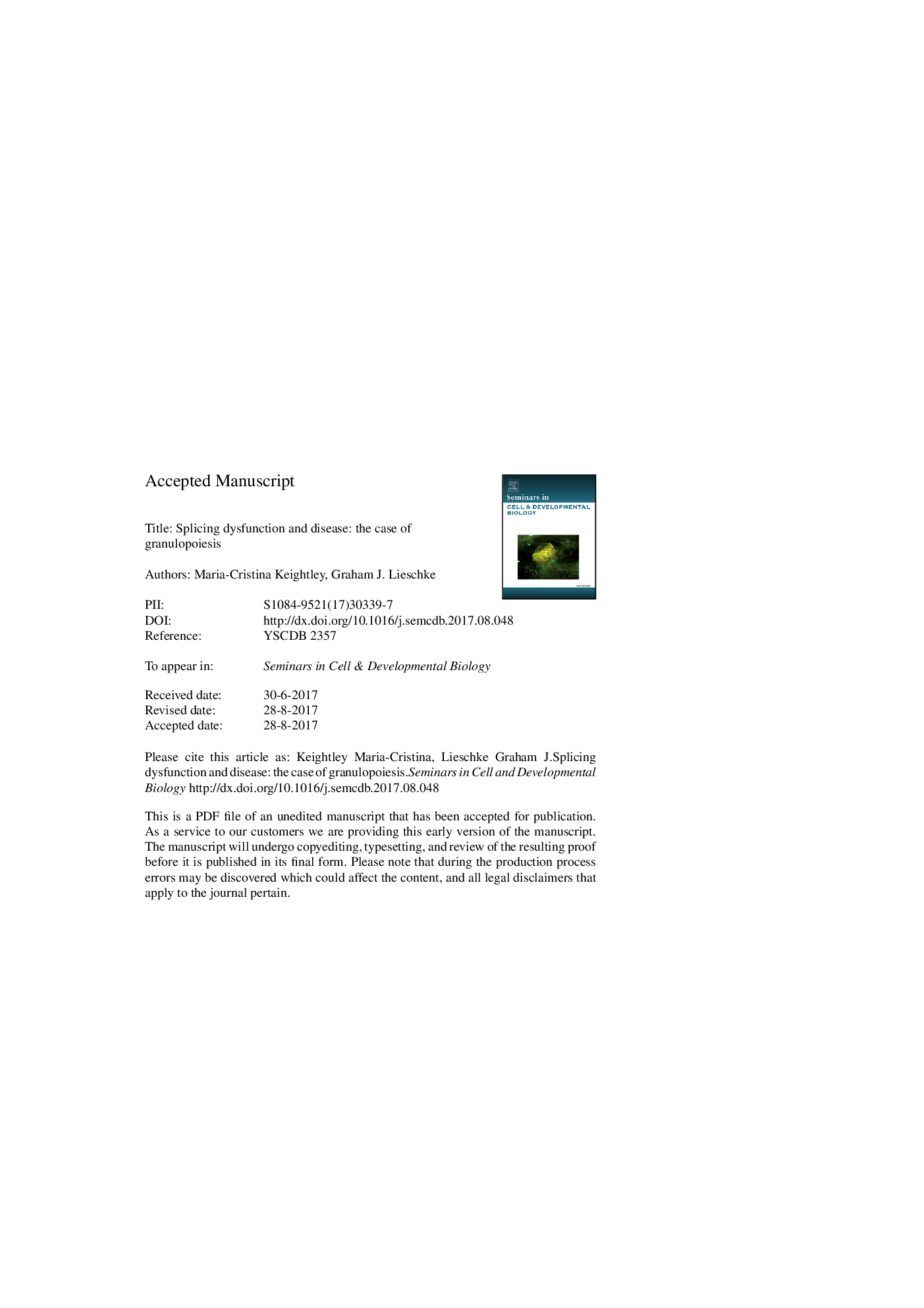| Article ID | Journal | Published Year | Pages | File Type |
|---|---|---|---|---|
| 8479732 | Seminars in Cell & Developmental Biology | 2018 | 65 Pages |
Abstract
Splicing is a ubiquitous process in eukaryotic cells, long recognised as contributing to diversity of the transcriptome. More specifically, splicing fine-tunes the transcriptome output for highly individual outcomes at different stages of cell development, in specific timeframes, which when perturbed result in significant human diseases. Granulopoiesis provides a particularly well studied example of how splicing can be a highly flexible but tightly regulated process. Focusing on the specific case of granulopoiesis, this review surveys the contribution of cis-splicing variations in individual genes and the trans-regulation of global splicing outcomes during the normal development of neutrophils. Further, the contribution of splicing dysfunction to the pathogenesis of diseases of neutrophil number, function and maturation including hereditary neutropenia, myelodysplasia, and acute myeloid leukaemia is explored.
Keywords
Related Topics
Life Sciences
Biochemistry, Genetics and Molecular Biology
Cell Biology
Authors
Maria-Cristina Keightley, Graham J. Lieschke,
